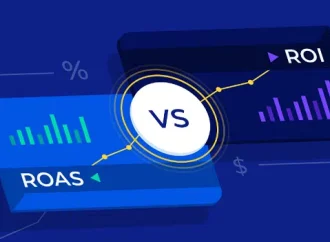In today’s digital age, it’s more important than ever for small businesses to prioritize cybersecurity. Ignoring this crucial aspect of business operations can have dire consequences that could potentially cripple your company. From data breaches and financial losses to damaged reputation and legal fees – the risks are simply too high to ignore. In this
In today’s digital age, it’s more important than ever for small businesses to prioritize cybersecurity. Ignoring this crucial aspect of business operations can have dire consequences that could potentially cripple your company. From data breaches and financial losses to damaged reputation and legal fees – the risks are simply too high to ignore. In this blog post, we’ll explore the various consequences of neglecting cybersecurity in small businesses and provide tips on how to avoid them. So grab a cup of coffee and let’s get started!
Cybersecurity is an important part of any business and ignoring it can have serious consequences
Small businesses often think that cybersecurity is not an important part of their business, and as a result they can disregard the threat of cybercrime. Unfortunately, this could have serious consequences. A study by the Ponemon Institute found that small businesses are more likely to be victims of cybercrime than large businesses. Additionally, small businesses are more likely to experience financial losses due to cybercrime than larger businesses.
The Ponemon Institute study also found that small businesses are less prepared to deal with cyberattacks than larger businesses. In fact, almost half of all small businessesreported experiencing a data breach in the past year, compared to only one-third of larger businesses. This suggests that smaller businesses may not have the resources or expertise to prevent or respond to a cyberattack.
If your business is vulnerable to cyberattacks, it is important to take steps to protect yourself and your customers. One way you can do this is by implementing basic cybersecurity measures like malware protection and encryption for your computer systems. You should also consider hiring a consultant to help you protect your business from attack.
The different types of cyberattacks
Cybersecurity is essential for any business that relies on technology, but it’s especially important for small businesses. Cyberattacks can have serious consequences for companies of all sizes, and small businesses are particularly at risk.
Small businesses often don’t have the resources to devote to cybersecurity, and they’re also more likely to be targeted by cybercriminals. Cyberattacks can cause damage to a company’s data, systems, and reputation. They can also disrupt operations and lead to lost business opportunities.
There are different types of cyberattacks, and each has its own consequences. Here are three examples:
1. Data theft: When hackers break into a company’s database or steal confidential information, they can compromise the company’s security and damage its reputation. Data theft can also lead to financial losses as businesses have to spend time and money restoring their security measures and rebuilding their customer base.
2. System crash: A cyberattack that causes a system crash can disable a company’s computer systems or even destroy them altogether. This type of attack can seriously disrupt business operations and cost the company valuable time and money in terms of reconstruction costs and lost profits.
3. Personal identity theft: In this type of attack, hackers steal personal information such as Social Security numbers or bank account details from individuals working at a company. This information can then be used fraudulently by criminals online or even used in physical attacks against those individuals
The different ways cyber attacks can damage a small business
Cybercrime can have a wide range of consequences for small businesses. Cyberattacks can damage business data, disrupt operations, and even lead to financial losses. Some common cyberattack techniques include:
-Spoofing: Spoofing is a form of cyber attack in which an attacker masquerades as a legitimate entity in order to gain access to sensitive information or exploit vulnerabilities.
-Phishing: Phishing is a type of cyber attack in which attackers attempt to lure individuals into revealing their personal information by sending suspicious emails or websites.
-Ransomware: Ransomware is a type of malware that encrypts files on a victim’s computer and then demands payment from the user in order to release the files. Victims may find it difficult or impossible to pay the ransom, leading to further financial losses.
What small businesses can do to protect themselves from cyberattacks
Small businesses can protect themselves from cyberattacks by following these tips:
1. Install antivirus software: antivirus software is essential for protecting small businesses from cyberattacks. A good antivirus program will scan your computer for viruses and other malware, and will keep your computer safe from threats.
2. Keep up to date with security updates: regularly update your software and hardware to stay ahead of the latest threats. Make sure that you have the latest security patches installed on all of your devices, including your computer, smartphone, and tablets.
3. Use strong passwords: make sure that all of your passwords are strong and unique. Use a combination of upper and lowercase letters, numbers, and symbols (including special characters like @!). Don’t use easily guessable words like “password” or easily accessible personal information like your birthday or Social Security number.
4. Protect yourself online: use a secure web browser (such as Chrome or Firefox) and avoid clicking on links in unsolicited emails or messages from strangers online. Also be careful about what data you share online: always use encryption when possible to protect sensitive information such as bank account numbers or login credentials.
5. Train employees about cybersecurity: make sure that everyone in your business understands the importance of cybersecurity and how to protect themselves against cyberattacks. Educate employees about best practices for password management, internet safety, and virus protection
Conclusion
As more and more businesses move online, the importance of cybersecurity cannot be overstated. In fact, a recent study by Gartner found that almost two-thirds (64 percent) of small businesses have been compromised in some way due to cybercrime. This means that if your business is not taking cybersecurity seriously, you could be at risk of serious financial losses as well as brand damage. A comprehensive cybersecurity program can help minimize these risks and ensure your business stays safe from attack.





















Leave a Comment
Your email address will not be published. Required fields are marked with *